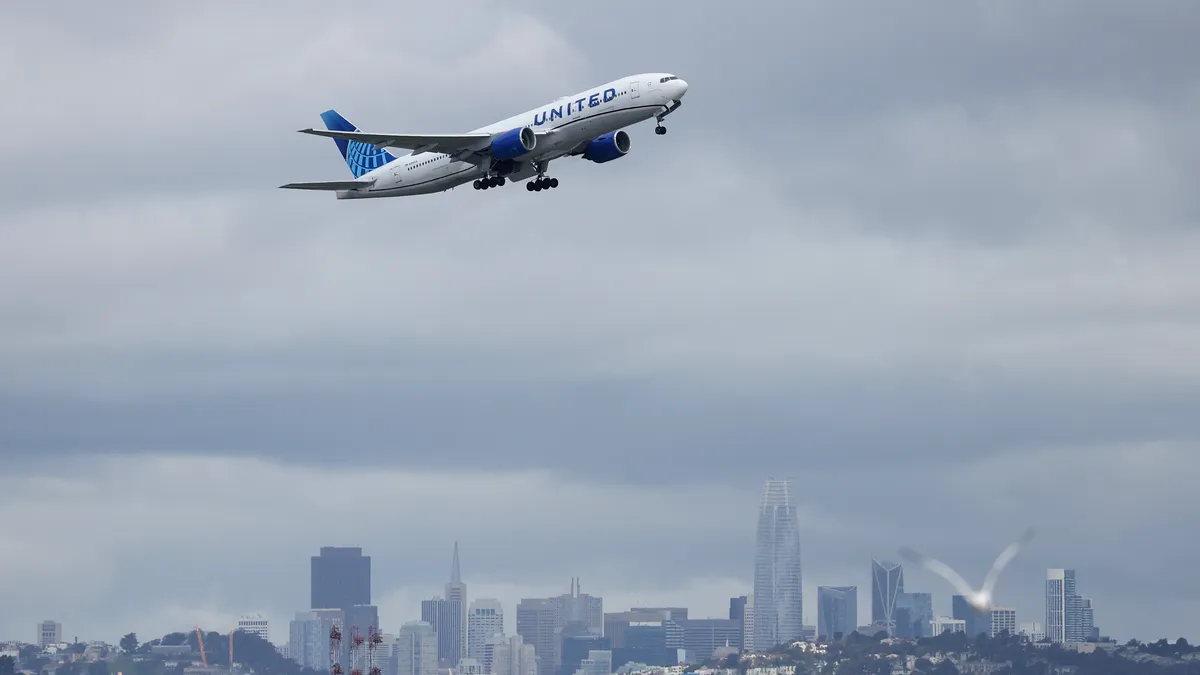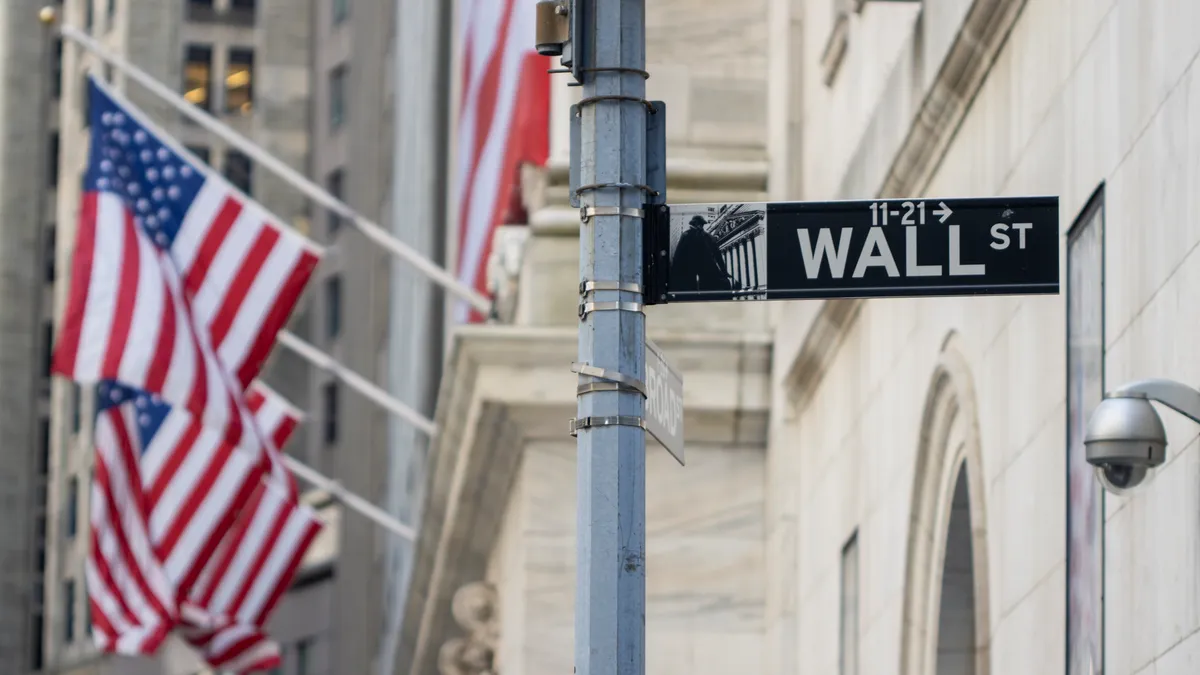Dive Brief:
- A U.S. District Court in Maryland dismissed a class-action lawsuit against United Airlines that alleged the airline deceptively advertised the true environmental impact and scale of its sustainable aviation program.
- A United customer, Alexander Zajac, brought the class-action claim under the Maryland Consumer Protection Act last November, stating he paid higher prices to fly United under the impression the airline was utilizing more sustainable aviation fuels — a claim Zajac alleges was a “false” and “misleading” representation of its SAF consumption.
- United argued that since the gripe was with the higher prices, the claim was preempted by the federal Airline Deregulation Act. District Court Judge Paula Xinis agreed and dismissed the claim with prejudice on Aug. 13. The need to scale SAF investment, production and adoption, however, recently led American Airlines CEO Robert Isom to sound the alarm on the aviation sector’s decarbonization efforts.
Dive Insight:
Zajac said he paid higher prices to fly with United between 2020 and 2023 due to the airline’s environmental claims and its intent to go “100% green” and be carbon neutral by 2050. He was particularly drawn to the airline’s “Eco-Skies” program’s use of sustainable aviation fuel, per the Aug. 13 ruling.
Zajac’s suit, later certified as a class action, alleged United violated the MCPA because the airline advertised itself as the first “in aviation history to fly a passenger flight using 100% sustainable aviation fuel.” However, Zajac said he later found out that SAF made up just 0.025% of the airline’s fuel supply and, hence, would not have paid more to fly with the airline if he had known this, according to the dismissal.
For the sake of evaluating the preemption claim, Xinis was required to take all factual allegations as true and “construe them in the light most favorable” to the plaintiff.
United said the claim primarily alleges “deception in its prices and services,” which is preempted by the Airline Deregulation Act expressly prohibiting states from enacting or enforcing laws, rules or any other provisions that relate to air carriers’ rates, routes or services.
The Supreme Court previously ruled that state laws connected to airline rates, routes and services are preempted under the Airline Deregulation Act, as are “violations of ‘generally applicable consumer protection laws’ related to deceptive fare advertising,” Xinis wrote. She also cited a prior decision from the U.S. Fifth Circuit of Appeals that held that consumer law violations concerning transportation implicate an airline’s services.
“Reading the Complaint most favorably to Zajac and the putative class, United’s alleged misrepresentations were aimed at inducing consumers to fly United at higher ticket prices,” Xinis wrote. “From this, the Court easily concludes that the MCPA claim relates to United’s provision of transportation services and is therefore preempted by the Deregulation Act. … The claim must be dismissed.”
Xinis said the claim would be dismissed with prejudice — barring the claimants from amending and re-filing the claim. The core of the complaint is the allegation that United’s environmental advertising is designed to entice Zajac and others to pay premium prices, which will always implicate the airline’s services.
“Given the broad reach of the [Airline] Deregulation Act’s preemption provision, the Court cannot see how Zajac could amend the claim to escape dismissal,” Xinis wrote.
United’s 2023 Corporate Responsibility Report reaffirmed the airline’s commitment to reach net-zero greenhouse gas emissions by 2050 “without relying on the use of voluntary carbon offsets,” CEO Scott Kirby wrote in an included letter. The company’s plan will rely on continuous reduction of fossil fuel-based jet fuel; scaling and commercializing the adoption of SAF; looking beyond air travel and reducing operational emissions on the ground; and collaboration, per the report.
The airline has a 2035 target — which received validation from the Science Based Targets initiative in May 2023 — to reduce its carbon emissions intensity by half, compared to a 2019 baseline, according to the report.
Regarding SAF, however, the airline said current supply of the less carbon-intensive fuel is “constrained” and represents “far less than 1% of global commercial aviation fuel usage.” American Airlines’ CEO Isom previously said “there’s an urgent need for more and faster action across the public and private sectors” to help the aviation industry meet its decarbonization goals.
The airline launched two SAF funding vehicles in 2023 and recently inked a deal to purchase 1 million gallons of SAF through the end of the year for flights departing from Chicago O’Hare International Airport. In total, United has purchased SAF for flights in five cities: Los Angeles, San Fancisco, Chicago, London and Amsterdam.










